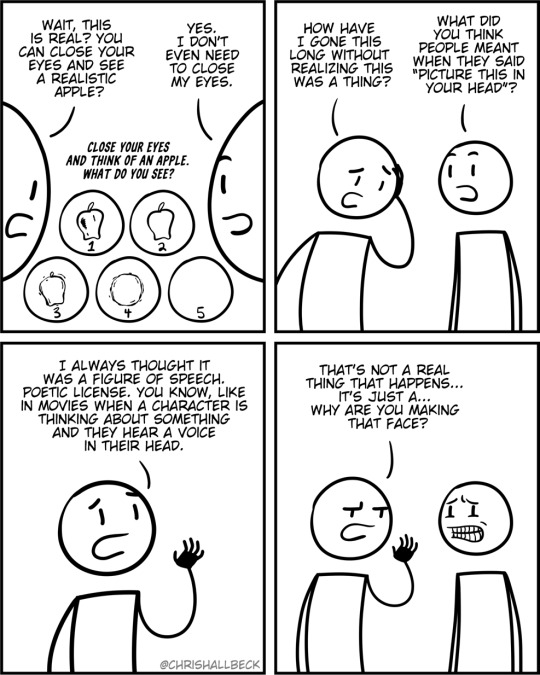#aphantasia
Text

Grasshopper (1987) by Peter Blegvad from Imagine, Observe, Remember
#Grasshopper#1980s#1987#Peter Blegvad#art#painting#artist#aphantasia#hyperphantasia#visual thinking#reference#Miss Cromwell
14K notes
·
View notes
Text
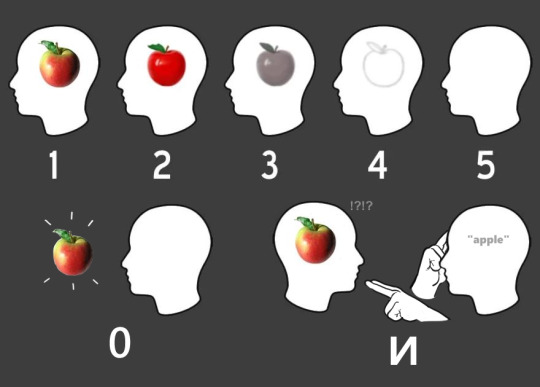
5K notes
·
View notes
Text
When you picture yourself in your mind, do you imagine yourself precisely how you look in real life, or do you see something else (an alter ego, a person who looks differently, another being, etc.)?
When you're visualizing from the first person's pov, whose hands are you seeing?
If you have aphantasia, consider "seeing" as a metaphor for the way you think of the concept of yourself.
The main options (we put them here due to the character limit):
🪞: I only imagine myself the way I look like irl.
🪆: I imagine someone/something that represents me.
✨️: I imagine myself in multiple ways: the way I am, as another being, as an abstract concept, you name it.
Please reblog for a bigger sample size and feel free to expand on your answer in the comments / tags!
Credit to @anon (we added a few options).
#minds eye#imagination#self concept#lgbtqia#aphantasia#psychology#cognition#queer#nonbinary#agender#transgender#did system#dissociation#depersonalisation and derealisation#neurodiversity#spirituality#tumblr polls#tumbler polls
4K notes
·
View notes
Text
Years ago I was told there’s an easy way to test if someone has aphantasia: ask them how many windows are in their home. They might ask if windows in doors or windows that leads into other rooms count and you can tell them yes or no because the answer doesn’t actually matter.
Once they tell you the answer ask them how they came to that number. The majority will say they imagined standing in each room and looked around. People with aphantasia will either say they don’t know because they never counted them, or that they know they have three rooms facing an outer wall so there must be at least one window in each of those rooms or another method that used logic rather than imagination.
This isn’t meant to out someone as having aphantasia or anything like that. It’s just a handy method if someone is wondering if they have it, or a fun little exercise between friends with no judgement. You can even do the test on yourself and quickly work out if you have to use imagination or logic.
4K notes
·
View notes
Text
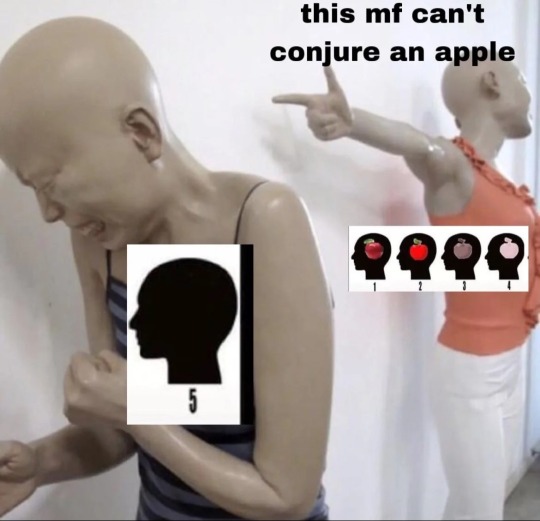
apprule
4K notes
·
View notes
Text
Since I’m on the topic of stuff I didn’t know… I want to talk about aphantasia. Which is: “the inability to form mental images of objects that are not present.”
I had no idea that when people said “picture this” it wasn’t always metaphorical. I just assumed no one could picture anything. And since no one talked about it, I had no idea that some people can picture stuff in their head! It’s also apparently a scale where some people can picture everything and some people can picture a little with some people picturing nothing.
So, I’m curious again…
820 notes
·
View notes
Text
Aphantasia is the inability to visualize within your mind. When told to think of an apple, people with aphantasia will not see it in their mind's eye, instead thinking of facts.
TOTAL aphantasia is the working term for a complete lack of the mind's senses. No visualizing, no remembering the smells of a certain place until you smell it again, no recalling exact sounds until they're heard again, et cetera.
Neither of these is a mental disorder. For those wondering, anon has total aphantasia with no inner monologue whatsoever.
–
We ask your questions so you don’t have to! Submit your questions to have them posted anonymously as polls.
#polls#incognito polls#anonymous#tumblr polls#tumblr users#questions#aphantasia#mental image#brain#polls about brains#submitted nov 8
900 notes
·
View notes
Text
please stop associating the term neurodivergent with JUST autism and adhd. like please. there are so many ways to be neurodivergent and it’s not fair to assume that it’s just about autism adhd.
#inclusivity would be GREAT#dyscalculia#dyslexia#alexithymia#dyspraxia#auditory processing disorder#sensory processing disorder#tourettes#CAN YALL SEE THESE OTHER ONES TOO!!!#nova rants#actually avpd#synesthesia#neurodivergent#aphantasia#im only tagging some stuff but feel free to add more#hyperlexia
2K notes
·
View notes
Text
quite a random thought but a little poll for my writers specifically
1. writer is subjective if you write stuff you’re a writer period idc what it is
2. talking about the aphantasia test specifically, here:

please pick the one you experience most often. i Personally kind of shift between 3-5 so i picked the one i experienced more commonly which is 4.
i’m just curious to see how this affects writers bc i personally believe it has some bearing on how i write and use description and i’m curious to see the spread on others.
511 notes
·
View notes
Text
In the ongoing discussion of aphantasia (see "an aphantasia fantasia" tag for more) an article popped up recently which has some details to share, including a history of how aphantasia was discovered in the scientific sense. I don't have "spatial thoughts" the way the author does, but it's also a pretty good discussion of how people who don't form mental images (or can't access sound, smell, etc in their minds) still interact normally with the world.
Here's some fucked up shit I didn't expect, however:
In a 2015 paper, a group of researchers [...] identified a new syndrome they called “Severely Deficient Autobiographical Memory,” or SDAM for short. People with SDAM lack the ability to relive past experiences in their minds. While this condition is rare among the general population, a preliminary survey hints at a link with aphantasia, with as many as 51 percent of a sample of 2,000 SDAM individuals also having aphantasia.
My own experience is similar. Past episodes of my life—when I can recall them at all—feel distant and non-sensory. [...] I would describe my recollections as summaries of key facts rather than first-person “mind movies.” When asked, out of the blue, about an experience I’ve surely had—say, any childhood birthday party—my mind first responds by drawing a blank. It feels as if my episodic memories were filed into a “mental cabinet” without an index. Many memories are in there, somewhere, but retrieving them is a daunting task unless I’m provided with very specific prompts. With some groping work of deduction (where did I live at the time? Who did I hang out with?) I can gather enough hints to bring out some locations and non-visual facts: I had a big party in our countryside garden when I was 11 or 12; there was cake; a lot of kids running around and … that’s about it.
This is one hundred percent how I access memory and how I assumed everyone did -- I am well aware I don't remember chunks of my past (or only remember them if prompted by something) but I do the same thing he does. I ask myself where I was living, or what other things were happening at the time, or I snag on a rare memory of a piece of clothing or a feeling, and I extrapolate from there. I don't relive memories in the way that the article implies regular people do, and while I will recognize say, the smell of a specific library, a deeply ingrained scent for me, I don't remember the smell if I'm not standing there smelling it. And this explains my dedication to making an annual photobook documenting the past year, each December -- the photobooks are powerful memory triggers and have more than once reminded me where I was or what year it was when I did XYZ thing.
Also, turns out that one of the key methods for emotional regulation in most people is calling up a happy memory to counteract sad ones, which is why depression is so pervasive, because depressed people have literal biological impairments to remembering or reliving positive memories.
And SDAM, associated with aphantasia, is an impairment to reliving any memory at all, so...
Big ol' neurological yikes, guys.
629 notes
·
View notes
Text
aphantasia - the inability to form mental images of objects that are not present. the inability to 'picture' something in your mind's eye.
feel free to elaborate in the tags too btw! anyways, time to ramble
earlier this year i found out that other people weren't just speaking "metaphorically" when they say they can imagine/visualize something when they close their eyes. they can actually 'see' what they're thinking of!
you know that apple thing? they can actually see the apple and i can't, it's just black in my noggin, and that rocked my world! whenever i closed my eyes and imagined something, there's no image forming, i just know that i'm thinking of something.
and i think it's kind of interesting esp since i'm a visual artist, i draw and all that. and i can't see what i want to draw, i just know where i want to put the lines, what the colors i want are, and all that stuff. so i wondered how other artists tackled having aphantasia and drawing if they have it
479 notes
·
View notes
Text
Question for people with aphantasia:
What happens when you read? Is it more difficult to connect to a written story rather than a movie?
(When I read, I see a kind of movie in my head, but you probably don't, and I'm curious.)
404 notes
·
View notes
Photo
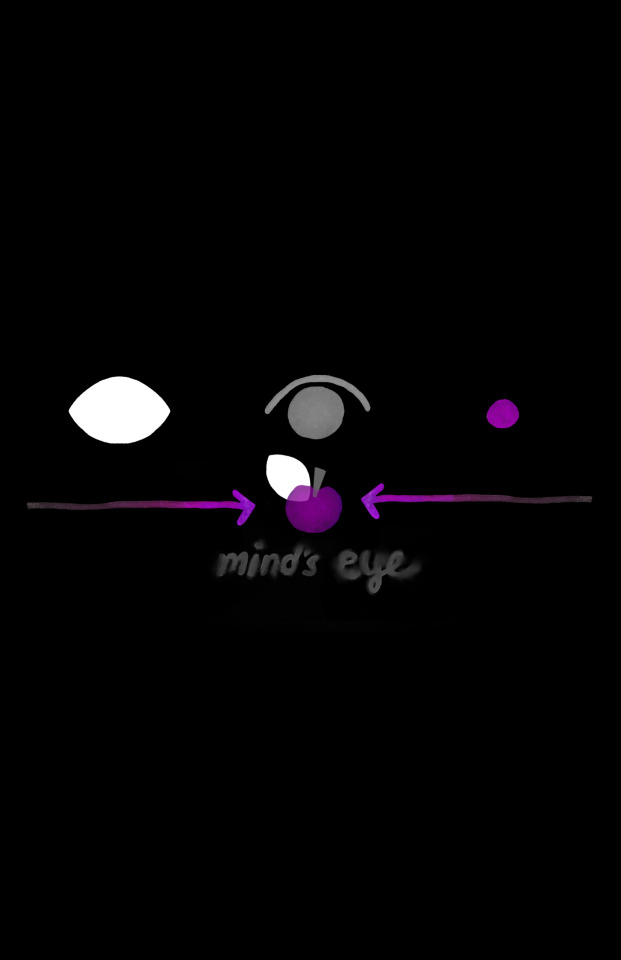

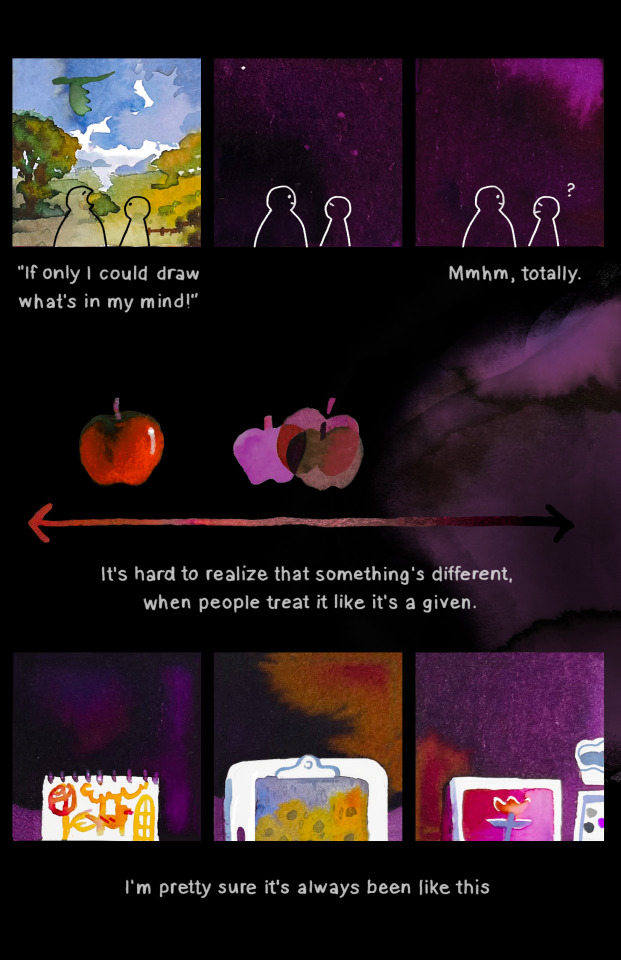
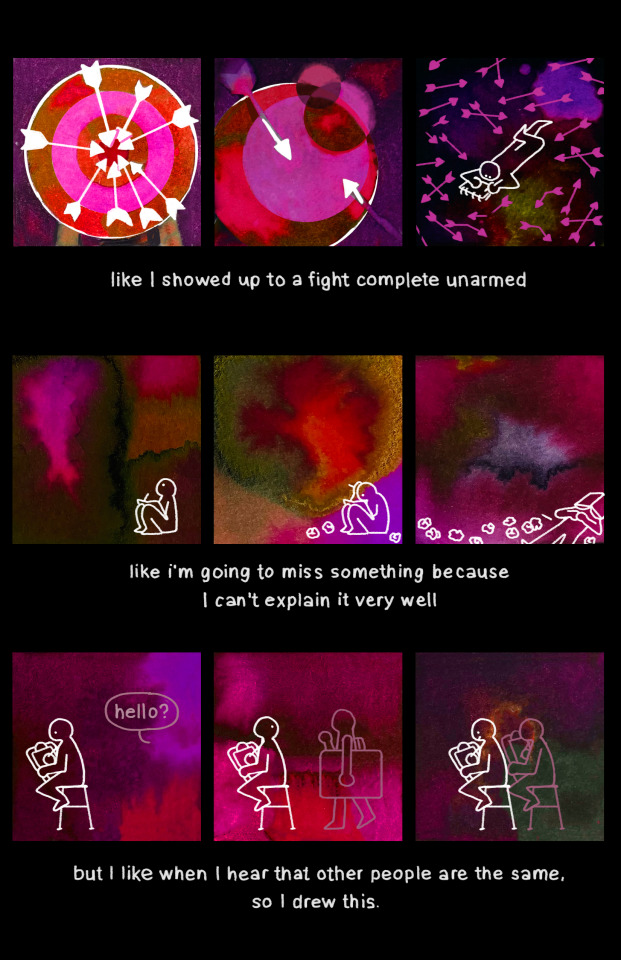
I don’t know if this is accurate to everyone, it’s just the weird art lens I need to look at everything through. It took me till adulthood to figure out both these things.
#comic#aphantasia#mind's eye#acespec#asexual#inks#sorry this comic requires pre-exisiting knowledge of the mind's eye apple#art
1K notes
·
View notes
Photo

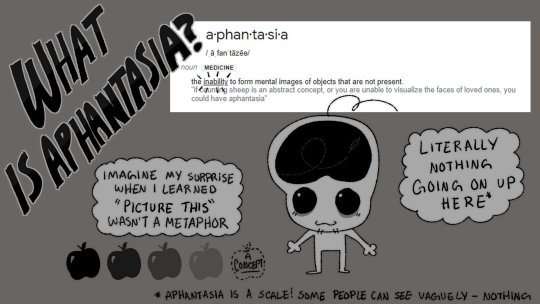
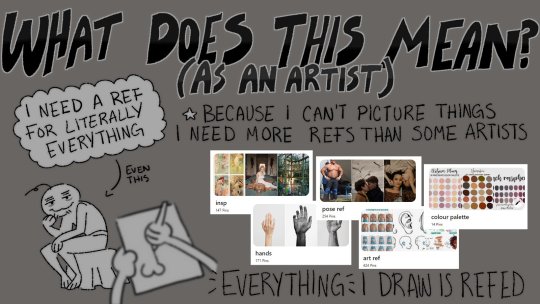
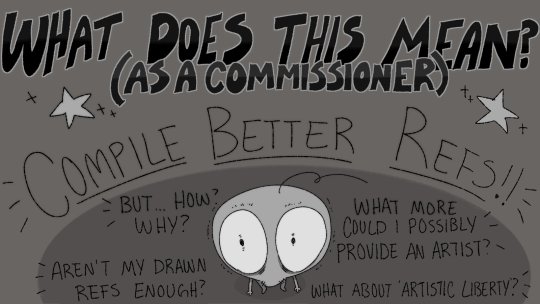
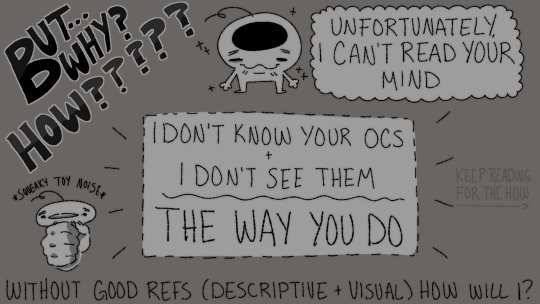
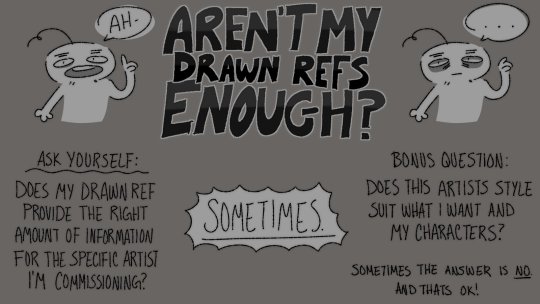
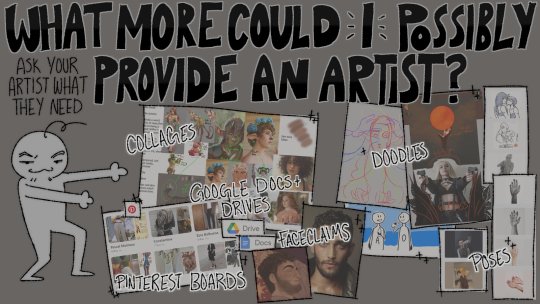
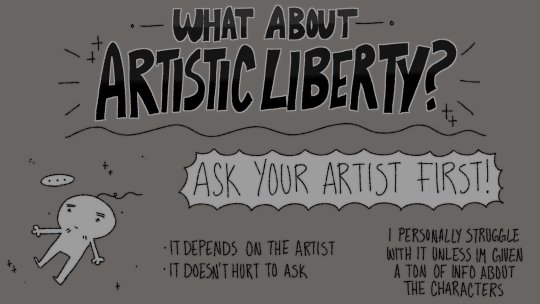
A “Guide” to working with Artists with Aphantasia
DISCLAIMER:
I KNOW ARTISTS WITHOUT APHANTASIA ALSO USE REFERENCES
This is not going to be applicable to ALL artists (with OR WITHOUT aphantasia)
I don’t speak for everyone!!!
PLEASE Read the information artists provide you THUROUGHLY
ASK ARTISTS WHAT KIND OF INFORMATION THEY NEED
I’m sorry about the typos I am dyslexic and no one is beta reading this :3c
HERE IS THE OG TWITTER POST
I made this guide out of frustration.
I was having a hard time communicating with commissioners how much visual information I needed, and that giving me creative freedom doesn’t, personally, work for me. It all comes down to the why; Aphantasia.
... I realized a lot of people don’t understand what that is, and how it might affect an artist.
Note: I am a character artist!!! I do personal commissions!!!! I don’t do commercial work!! This guide is about things that I have found extremely helpful!! This may not work for everyone!!!!!!!!!!!
So, here is the official written guide to what I, personally, have found helpful when getting commissions:
A healthy dose of both written and visual information is needed, but the percentage of which heavily depends on the type of commission and how familiar I am with the characters.
- Is it an illustration of a scene between two character? Descriptive information on the scene, the emotions, general vibe, dialogue are more important to the composition - but visual references on each character (and their characteristics), the space, the palette, and any objects would be needed.
- Is it a reference sheet commission? Descriptive information is no longer as important, and the main focus is on the visuals. Descriptive information would be limited to a brief description of personality, placement of certain markings, and/or the written information on the reference. Visuals would be EVERYTHING - every single aspect of that character would need a reference.
Google Docs, Google Drives, PDFs, Character pages (Toyhou.se or Refsheet.net) is an easy way to compile both written and visual information in one place!
What is some good visual information to compile for your characters?
Physical
Age/Race/height/body type
Skin colour/ scars/ freckles/ skin conditions etc
Eye colour/shape
Nose shape
Hair colour/texture/style/decorations
Any additional details (prosthetics limbs/no limbs!/tattoos/piercings/wings)
Face Claims are extremely helpful - and it’s okay to have more than one!
It’s good to specify which parts of what reference are important to your character
Items
Clothing/Jewelry/Accessories
Weapons
Personal Items
Companions
Here is an example of how I organize my Pinterest boards for my own Ocs:
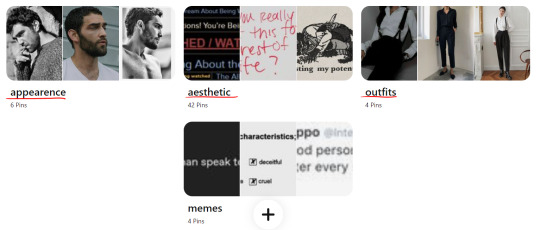
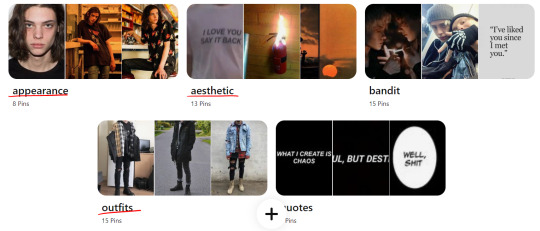
Appearance: Every single visual reference I would need for their physical appearance. Faceclaims, hair styles/texture/colours, facial hair, body types, hand shapes, nose shapes, lip shapes, eye shapes
Aesthetic: Helpful for illustrations. Palettes and aesthetics that I attribute to these characters. Art styles, symbols, colours, settings, etc...
Outfits: Outfits and accessories. Full outfits or single items, textures, colours, patterns.
NOTE: It’s important to remember that some artists can only work with certain references (ie. drawn references vs photo references). If you’re unsure/your artists hasn’t stated which works best for them - ask!
I cannot work with drawn references in simplistic styles (anime specifically), and I struggle with using nothing but Final Fantasy screenshots. They’re important when it comes to providing colour or even outfit references - but facial features are much harder for me to translate.
Some artists are okay with things like piccrews and can translate them very well! I can’t.
What is some good visual information to compile for your characters?
Written information can vary from commission to commission; unless the illustration is based off a story, I don’t need a novel to be written about the piece.
Being dyslexic also makes it a struggle for me to parse through written information - I tend to have to break it down outside of the initial commission submission to fully understand what. I also tend to ask a ton more questions when I’m provided more written information than visual - revisions take time and energy.
It’s important to have visual to accompany your written info;

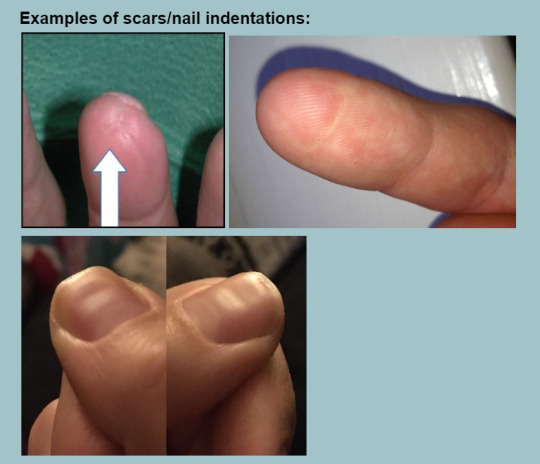
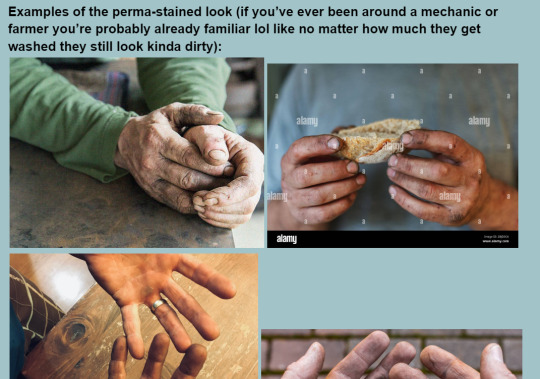
( shout out to @moki-dokie for letting me use their info as an example!! )
Commission information examples
DESIGN COMMISSIONS:
Info given:

Outcome:
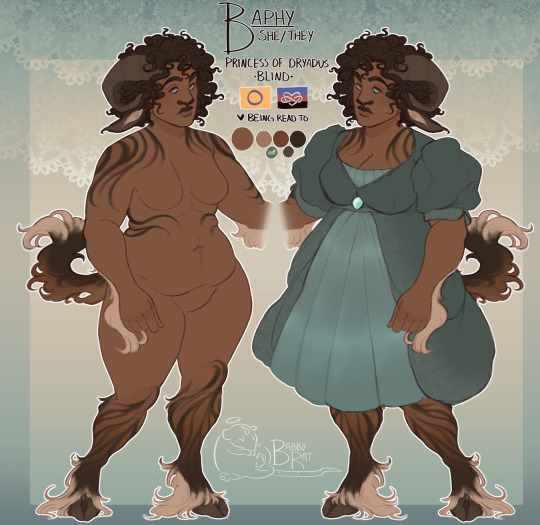
Easiest character design commission I have ever done. The information given was so concise that the only revisions were my own suggestions on the design itself.
---
Info Given:
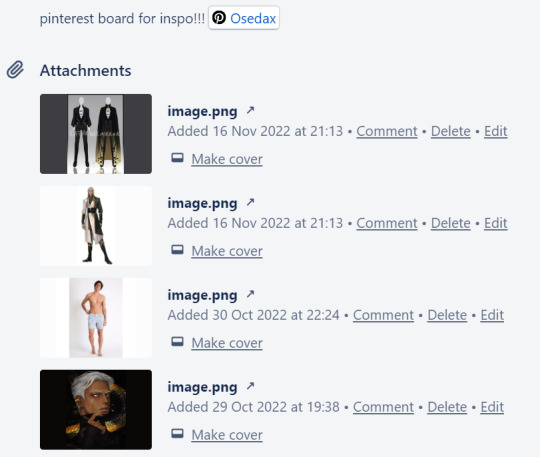
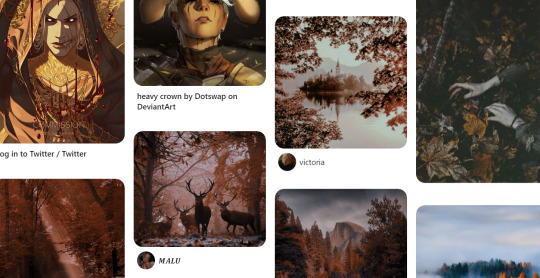
Outcome:
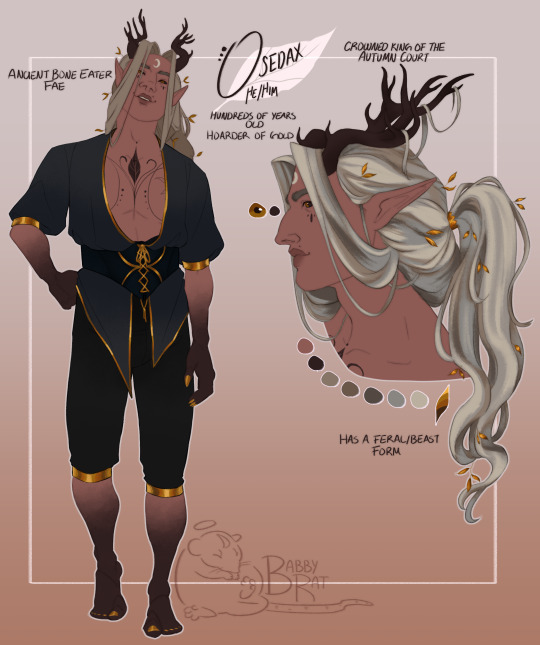
a TON of written information was given to explain the characters backstory, to further drive my understand of the aesthetic and setting of the world the character lives in. The pinterest board provided had a lot physical references, outfits, aesthetics, and colours.
---
ILLUSTRATION COMMISSIONS:
Info Given:
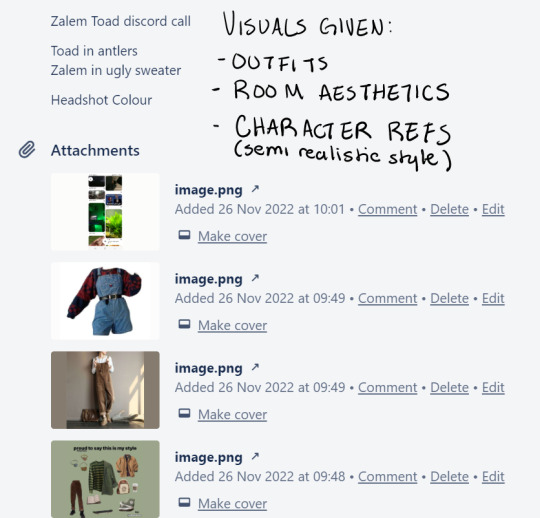
Outcome:
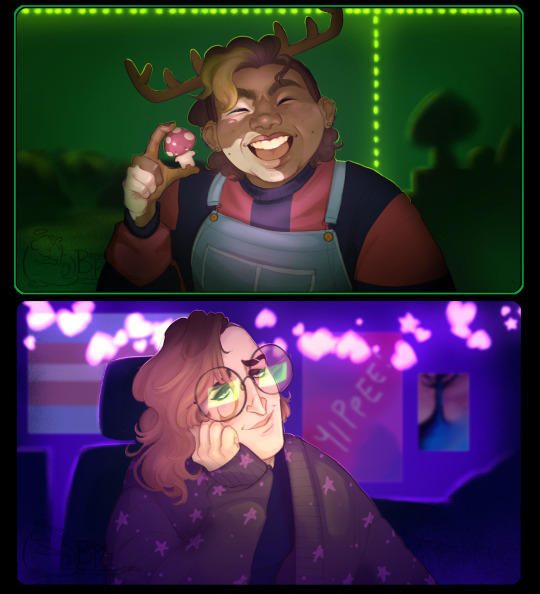
I had a lot of previous information on both of these characters (I designed the top one myself), but I was provided limited written information for this; Holiday Discord call where Toad (character one) is getting a present from Zalem (character two). Zalem is barely hiding how they feel about Toad who is excited.
All other information provided was visual; Outfits and room aesthetics.
We discussed poses in Dms and collaboratively found references.
---
Info Given:
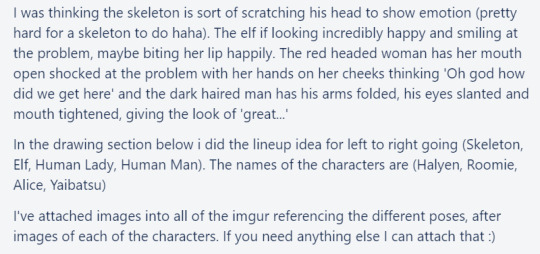
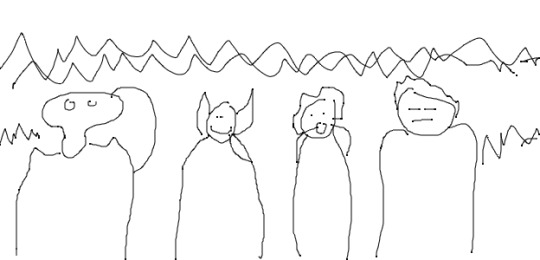
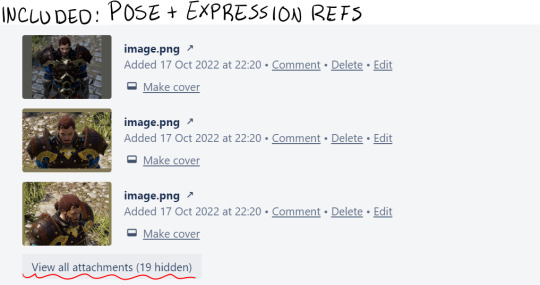
Outcome:
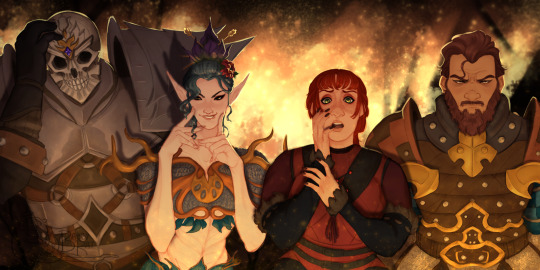
Absolute favorite example of the PERFECT amount of information given and the PERFECT amount of creative freedom given.
I was handed character references with all angles as well as their armor + how to simply the armor. Pose + expression references. A general aesthetic + palette to work with. The setting. A doodle to lay out exactly what they were visualizing.
I have all the information you could need! Now what?
I am very privileged to no longer need to take first come first serve commissions, and it’s given me the ability to really sit back and filter through the commissions that I want to do, and those that I immediately do not consider.
I think it’s important that, before commissioning anyone, you should ask yourself a couple important questions:
Does this artist’s style suit what I want?
Does my character suit what this artist usually draws?
Do the references I have provide the right amount of information for the specific artist I want to commission?
Sometimes the answer to these questions are; No.
... and that’s okay?
Unfortunately, not every artist is going to be able to bring your vision to life, or feel happy with the completed piece!
If you’re someone who has Big Buff Demon Men characters that are drawn in a heavily realistic style - you might not ask an artist who draws smaller, softer characters with squishier shapes and a general aesthetic that doesn’t match your Ocs!
If you’re someone who has characters and all of their references are in an anime style (including other commissioned work), and you have no realistic face claims... maybe commissioning that semi-realistic artist and not providing them with the references the need to translate your character into a semi-realistic style isn’t a good idea?
I don’t understand when some people get upset when they commission an artist who clearly doesn’t draw characters that look like theirs and they clearly... don’t translate them as well.
I am making this extremely clear RIGHT NOW before anyone says anything:
Everyone can and SHOULD learn to draw the entire spectrum of humanity. From facial features, hair textures, body types, etc...
But some artists struggle to draw characters with certain aesthetics? Outfits? Accessories? You wouldn’t expect an artist who draws soft pastel art to suddenly translate your extremely rough, hard, and hot character properly?
Now, if all the answers are Yes?
Read all information provided thoroughly
Ask questions for clarity
Provide what you can, collaborate on what you can’t
Resources
@anonbeadraws post: Reference sheet for your commission references!
JAMIErightmeow’s video: I have APHANTASIA
Aphantasia Dot Com
#my art#artists on tumblr#guide#aphantasia#artist with aphantasia#UH#damn i wasnt gonna write this much lmao#I hope this helps people#its helped a ton of people on twitter already#UH ANYWAY#if youre about to comment some shit like oOoOigiOIgioOIoI#IT HELPS PPL WHO DONT HAVE APHANTASIA TOO#shut up#please#i know#i am AWARE#THIS is for MY HOMIES#but also use this as a resource if you need it???#kiss kiss kiss kiss
796 notes
·
View notes
Text
I'm wondering - there's a lot of talk about aphantasia lately.
To it's hard to imagine the opposite, as in being able to 'see' images in your head. It must be an exaggeration?
But then I think about the fact that when I read fanfiction and the dialogues are good at following characters' speech patterns I can hear their voices in my head very clearly. And now I'm wondering if it is in any way connected to aphantasia or lack thereof.
This isn't scientific research, just a tumblr poll so don't sweat it too much. I'll let you decide what 'clearly' means to you in this context cause it's hard to measure that objectively. Personally, I think that if you're able to see a full image with different details and you don't need to 'focus in' on a specific element of the picture to come up with what it looks like, it counts.
#poll#tumblr poll#aphantasia#is it super controversial i don't think aphantasia (or rather the opposite of aphantasia) exists?#i just don't believe that with exception of very few people most are able to imagine something other than an approximation of an image
112 notes
·
View notes
